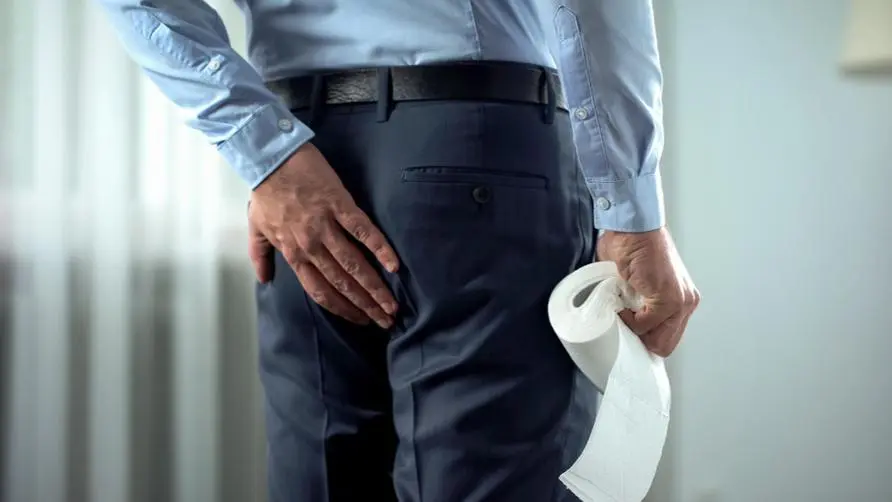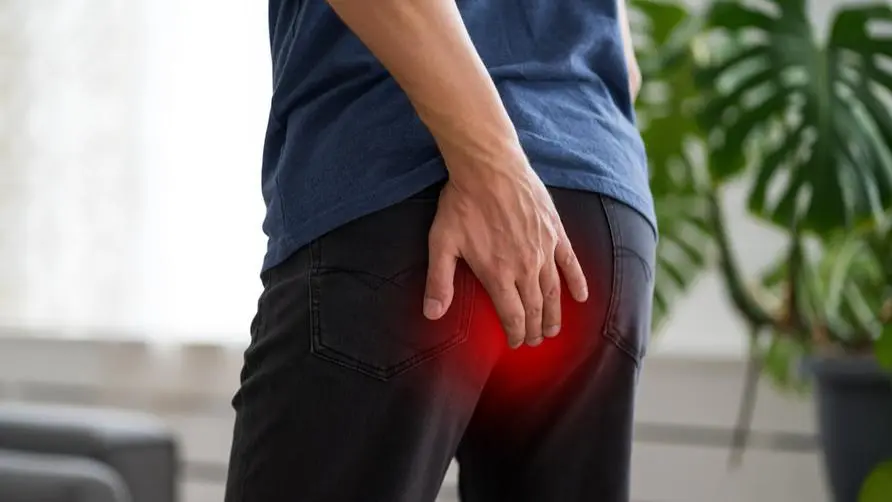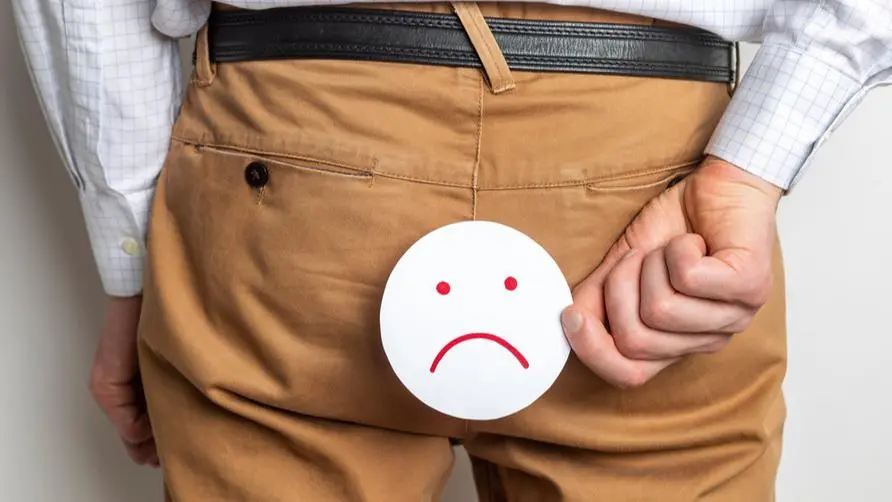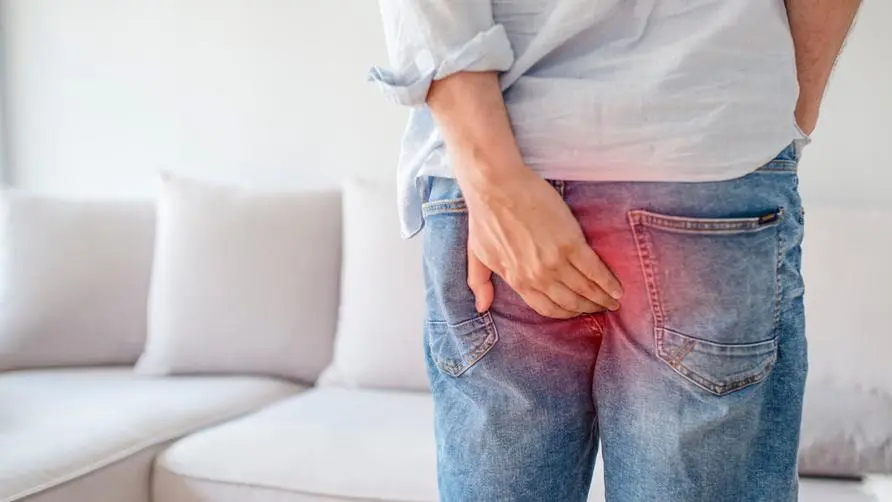How to distinguish hemorrhoids and varicose veins? Are anemia and dizziness caused by hemorrhoids? Medical advice: See a doctor immediately for these 2 major symptoms

Can’t tell the difference between hemorrhoids and varicose veins? Is hemorrhoids afraid of “profuse bleeding”?
Is “hemorrhoids” a disease caused by varicose veins? It is not only difficult for ordinary people to distinguish, but also professional nurses or medical students may have similar misunderstandings. Lu Yanrong, chief physician of colorectal surgery at Lin’an Clinic, pointed out that the physiological causes of hemorrhoids and varicose veins are similar, but there is a clear distinction between the two. The most direct manifestation is that severe hemorrhoids may cause “blood spurting” or even chronic anemia, affecting normal life. .
Dr. Lu Yanrong pointed out that most academic circles currently recognize the “hemorrhoids cushion theory” regarding the causes of hemorrhoids, which means that the cause of hemorrhoids is related to arteriovenous and small vessel malformation and connective tissue muscle fiber hyperplasia, which in turn causes the hemorrhoids to escape the anus and cause obvious external hemorrhoids. prolapse.
However, the formation of hemorrhoids, like varicose veins, is related to inflammation of the blood vessels. When the intra-abdominal pressure increases, the anal tissue will be compressed and squeezed. In the process, it will cause inflammation of the blood vessels or loss of tension in the blood vessels, resulting in stasis of blood cells and local inflammation. The pathological causes are similar to varicose veins. Clinically, there is a type of hemorrhoid medication that overlaps with varicose vein medication. The two have similarities, but their causes are essentially different.
Long-term hemorrhoids caused chronic anemia and she lost one-third of her hemoglobin.
When hemorrhoids are severe, they will not just “prolapse”? Dr. Lu Yanrong pointed out that when severe hemorrhoids attack, the symptoms may be very different. The most common symptoms include bleeding, pain, and swelling. The external hemorrhoids may be so swollen that they fall out of the anus. Some people may also experience anal itching. Some patients with hemorrhoids have abundant local blood flow due to vascular malformations. When severe inflammation occurs, severe rupture and bleeding may occur.
Dr. Lu Yanrong said that some hemorrhoid patients have anemia problems due to long-term chronic hemorrhoid bleeding. There was once a 50-year-old woman who suffered from frequent anal bleeding at least 2-3 times a week after defecation, and it was even so severe that “the whole toilet was filled with blood.” After medical examination, it was shockingly discovered that the hemoglobin was only 4, which is almost one-third of normal people.
“This patient was extremely pale when he walked into the clinic because of severe anemia. He thought it was the result of not being exposed to the sun for a long time!” Dr. Lu Yanrong pointed out that this female patient with hemorrhoids not only looked pale because of long-term chronic anemia, but also suffered from it. Fainting, easy to get tired and out of breath when usually moving quickly. Once it is confirmed after examination that hemorrhoids are causing anemia and affecting normal life, you should consider treatment such as hemorrhoid surgery.
Is it necessary to have surgery if hemorrhoids are discovered? Which kind of surgery is painless?
“About 80% of clinical hemorrhoid patients are treated conservatively!” Dr. Lu Yanrong explained that there are two main reasons why hemorrhoids are treated conservatively: first, hemorrhoids will not turn into cancer, and second, hemorrhoids are normal physiological tissues. , hyperplasia or recurrence may still occur after surgery. Therefore, the primary goal of treatment is to help patients make peace with hemorrhoids, such as using a bidet or using medication to control it.
Dr. Lu Yanrong reminded that hemorrhoids that require surgery usually have severe symptoms such as obvious bleeding, pain, or external anal prolapse, which affects normal life. Another type of patient who needs to consider surgery is those with hemorrhoids combined with problems such as anemia, anal fissures, and fistulas, which require surgical intervention.
“Nowadays, there are many hemorrhoid surgery methods. For example, laser surgery is suitable for fistulas and anal fissures. The wound size and pain level are also more acceptable!” Dr. Lu Yanrong explained that hemorrhoid surgeries can be divided into traditional surgeries, energy device surgeries, and laser surgeries. There are three major categories of radiosurgery. Laser surgery for hemorrhoids has the characteristics of small wound and low pain. You can discuss the appropriate treatment method with the doctor based on the patient’s condition.
Dr. Lu Yanrong said that when it comes to hemorrhoids, Taiwanese people still tend to avoid medical treatment, causing a huge psychological burden on patients. In fact, there are many ways to treat hemorrhoids, and surgery is not as scary as people think. There are also procedures that are less painful and faster to recover. The formula can be carried out. We remind you to go to colorectal surgery for examination and appropriate treatment as soon as possible when bleeding, prolapse or anemia is found.
Further reading:





